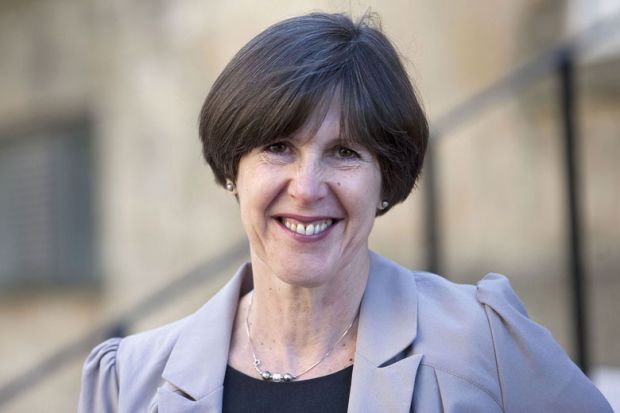Janet Beer, the University of Liverpool vice-chancellor, will be the next president of Universities UK.
Professor Beer will succeed Dame Julia Goodfellow, the University of Kent vice-chancellor, from 1 August 2017 after being elected in a ballot of UUK members, it was announced on 24 November.
UUK represents British universities in talks with the government. Mitigating the impacts of Brexit for higher education will be hugely significant during Professor Beer’s term. UUK presidents serve a two-year term.
Professor Beer is an advocate for female leadership in universities.
In 2015, after taking over at Liverpool, she told Times Higher Education that lifting the cap on tuition fees would lead to “a real segmentation of higher education that would not be desirable for us as a nation”.
Professor Beer was previously vice-chancellor of Oxford Brookes University. She is currently vice-president of UUK and chair of the board of the Equality Challenge Unit and was a member of the recent task force on dealing with violence against women, harassment and hate crime affecting university students.
Professor Beer studied English at the universities of Reading and Warwick, before a career at Warwick, Roehampton and Manchester Metropolitan universities, specialising academically in the American novelist Edith Wharton.
Nicola Dandridge, UUK chief executive, said: “Janet is widely respected throughout the university sector. With 10 years’ experience as the head of two universities, and having chaired and served on the boards of some of the sector’s main bodies, Janet will bring considerable experience and leadership to the role of UUK president.
“The Brexit negotiations will have considerable implications for UK universities in the coming years. On top of this, the teaching excellence framework, higher education bill and more debates about international student visas means we have our work cut out.”
Professor Beer said: “These are challenging times for our sector, and I look forward to working closely with members to ensure that UK higher education grows stronger than ever. That means attracting the best talent, producing well-rounded graduates and cutting-edge research, and making a major contribution to our social and economic development.”
Register to continue
Why register?
- Registration is free and only takes a moment
- Once registered, you can read 3 articles a month
- Sign up for our newsletter
Subscribe
Or subscribe for unlimited access to:
- Unlimited access to news, views, insights & reviews
- Digital editions
- Digital access to THE’s university and college rankings analysis
Already registered or a current subscriber? Login








